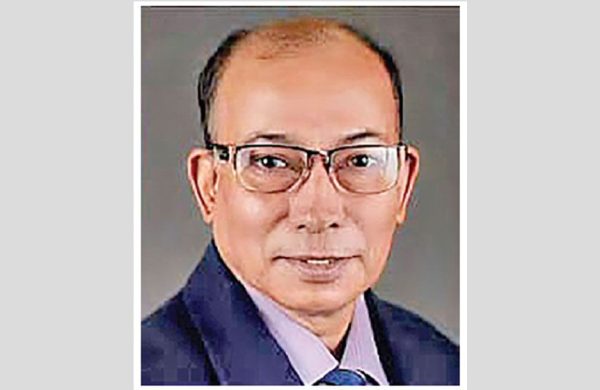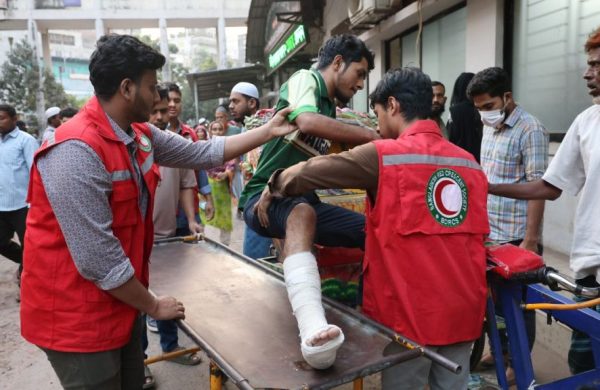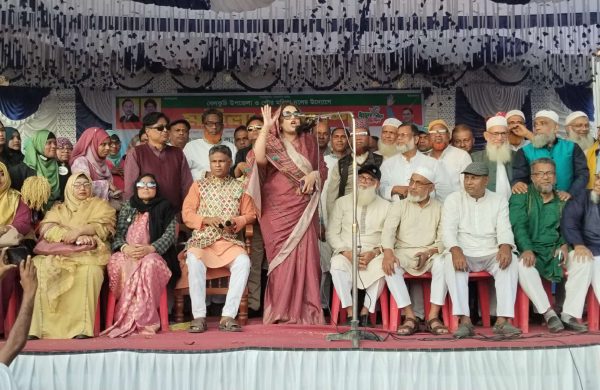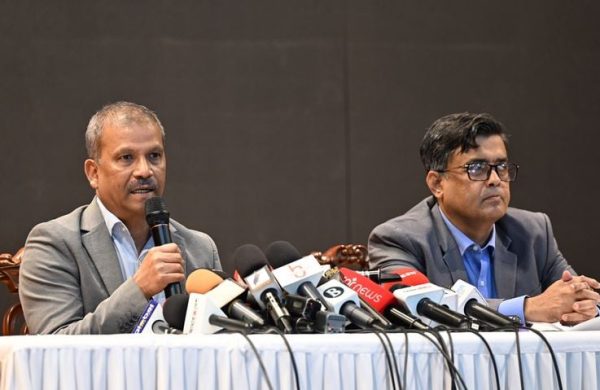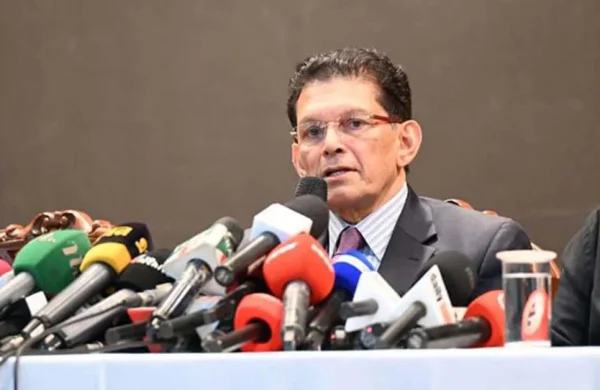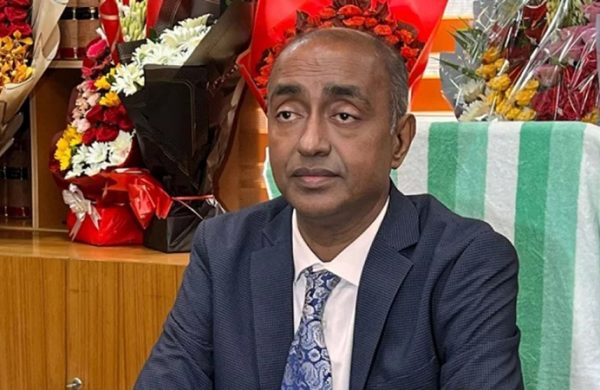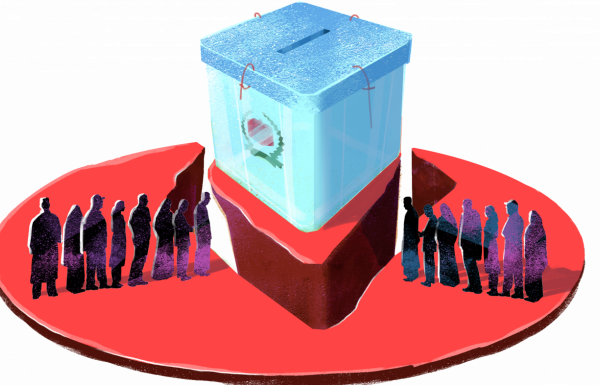Quader amassed thousands of crores thru’ nomination and committee trade
- Update Time : Saturday, June 28, 2025

TDS Desk:
Obaidul Quader served as the General Secretary of the Awami League for over 10 years. He holds a unique record of being elected to this position for three consecutive terms. At the same time, he served as the Minister of Road Transport and Bridges. During his tenure in this ministry, he allegedly engaged in extensive corruption, and after taking party responsibilities, earned thousands of crores by trading party positions and nominations for money.
According to calculations based on various sources, Quader earned at least 3,000 crore Bangladeshi Taka through these committee and nomination dealings. As the General Secretary of the Awami League, he had sole authority over the formation of committees. He would merely obtain verbal consent from Sheikh Hasina and then finalize the committees. Through this process, he allegedly amassed money with both hands. Within the party, many refer to this controversial general secretary as “Kaua Quader” (Crow Quader).
Reports from various sources suggest that from ward-level committees to central committees, the game of money was always in play. The qualifications of party leaders or activists were not considered. To form a ward-level committee, the set price was at least 5 to 10 lakh Taka. For someone seeking a top post, like ward president or general secretary, the rate could go up to 20 lakh Taka. At the thana (police precinct) level, the rate was between 15 to 20 lakh Taka. For district-level committees, the amount was 25 to 30 lakh, and for metropolitan committees, it ranged from 50 lakh to 1 crore Taka.
In the past 10 years, all district and upazila-level Awami League committees were allegedly formed in exchange for money. This money came through creative methods. Eight organizational secretaries of the party were assigned to oversee eight divisions. For every committee, they would act like auctioneers—demanding money and noting who could offer the most. The names of the highest bidders were sent to Quader, who then calculated how much he would personally earn before approving their inclusion.
He never checked if a person was truly a party loyalist or if they had any qualifications to be part of a committee. The only criterion was who could pay the most. Those who paid the highest sums got the committee posts approved by Quader. In places where there were no financial transactions, full-fledged committees—such as for Dhaka North and South—were not announced.
Thus, looters and criminals found their way into nearly all committees and misused their positions freely. Just as the Barakat-Rubel duo from Faridpur is widely known for corruption, several members of Awami League’s Dhaka committees are also accused of looting thousands of crores, as reported by the media. In some areas, influential ministers or MPs paid money to control local committees. For example, Lotus Kamal allegedly paid Quader 50 crore Taka for forming all the committees in his electoral area. Former Local Government Minister A.B.M. Tazul Islam reportedly paid 100 crore Taka for the same.
In addition to committee trading, Quader also profited by selling nominations. During his time as general secretary, there were two national elections, two local elections, two upazila elections, and multiple municipal and union council elections. These became avenues for massive nomination trade. Since opposition parties boycotted these one-sided and farcical elections, Awami League’s plunderers rushed to grab nominations. They believed winning the nomination would guarantee them a position as MP, mayor, upazila chairman, or union council chairman—positions which opened the door to unrestrained looting.
Investigations revealed that the main collector of nomination money was the party’s Office Secretary Biplob Barua. He had a chart detailing the price for each nomination. For example, nomination for a union chairman could range from 20 to 50 lakh Taka; for upazila chairman, 1 to 5 crore; for municipal mayor, 5 to 10 crore. For parliamentary nominations, there was no fixed price—money was collected through outright auctioning.
It is alleged that during the last dummy election, Quader collected 100 crore Taka just for a single nomination in a Dhaka constituency. Prime Minister Sheikh Hasina had initially decided not to nominate former jute minister Golam Dastagir Gazi from Narayanganj. However, after a meeting with Quader, a deal worth 100 crore Taka was finalized. The money was reportedly collected by Biplob Barua during a trip to Singapore. Using this money, Golam Dastagir Gazi bought his nomination. Only a handful of MPs during that time were nominated without paying money. Party insiders complained that only a few central leaders got nominated without payment—others had to pay large sums.
Quader claimed that the money collected was spent on party organizational activities, but in reality, the money allegedly ended up in his personal pocket. The biggest case of committee trade was in the Dhaka District committee. It’s alleged that Salman F Rahman, Sheikh Hasina’s then-private investment advisor, paid Quader 200 crore Taka for forming this committee. In a meeting with the committee members, Salman reportedly said: “I spent 200 crore Taka to make this committee. You must do exactly as I say—or I’ll dissolve it.”
The only committees Quader could not form were those of the Chhatra League (student wing) and Jubo League (youth wing). The Chhatra League’s committee trade was managed by its own leaders, while Jubo League’s trading was handled by Sheikh Fazle Shams Parash and his wife Nahid Juthi.
As a result of this widespread trading of posts, businessmen, looters, smugglers, drug dealers—even murder suspects—managed to secure committee positions. Senior leaders of the Awami League themselves admit that this committee trading has deeply damaged the party. And from this, Quader allegedly built a mountain of wealth worth thousands of crores.


